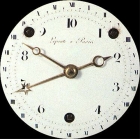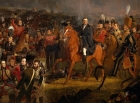Narrative in history
History teachers, academics and policy makers have often expressed concerns about the value accorded to narrative in school history, suggesting that an over-emphasis on certain concepts and processes – most obviously, causation and the critical evaluation of sources – has tended to obscure the importance of being able to put together a clear story. Constructing an effective narrative account, it has been argued, is not only an essential and demanding task in its own right and one that is fundamental to historians’ work; it is also the foundation on which other kinds of historical knowledge are built, and should therefore be more highly prized by teachers and within public examinations. Read more
-

Using historical discourse to find narrative coherence in the GCSE period study
ArticleClick to view -

Teaching Year 9 to take on the challenge of structure in narrative
ArticleClick to view -

What kinds of feedback help students produce better historical narratives of the interwar years?
ArticleClick to view -

Cunning Plan 174: creating a narrative of the interwar years
ArticleClick to view -

Absence and myopia in A-level coursework
ArticleClick to view -

The devil is the detail
ArticleClick to view -

Conducting the orchestra to allow our students to hear the symphony
ArticleClick to view -

‘Through the looking glass’
ArticleClick to view -

Anything but brief: Year 8 students encounter the longue durée
ArticleClick to view -

An Investigation into Finding Effective Ways of Presenting a Written Source to Students
ArticleClick to view -

History Teaching in Belarus: Between Europe and Russia
ArticleClick to view -

The History of Afro-Brazilian People
ArticleClick to view -

“They Ought to Know the Achievements of the Ancient Greeks”
ArticleClick to view -

Narrating “Histories of Spain”
ArticleClick to view -

The Past, the Present and the Future of the Economic Crisis, through Greek Students’ Accounts of their History
ArticleClick to view -

Why are you wearing a watch? Complicating narratives of economic and social progress
ArticleClick to view -

Putting Catlin in his place?
ArticleClick to view -

New, Novice or Nervous? 164: Constructing narrative
ArticleClick to view -

Cunning Plan 159: Putting the people into Magna Carta
ArticleClick to view -

Assessing the Battle of Waterloo in the classroom
ArticleClick to view

